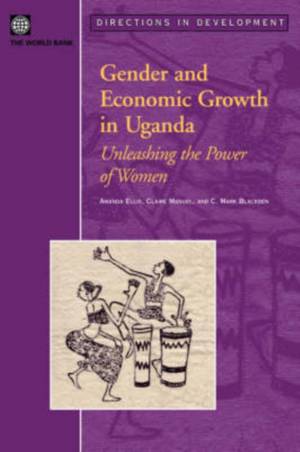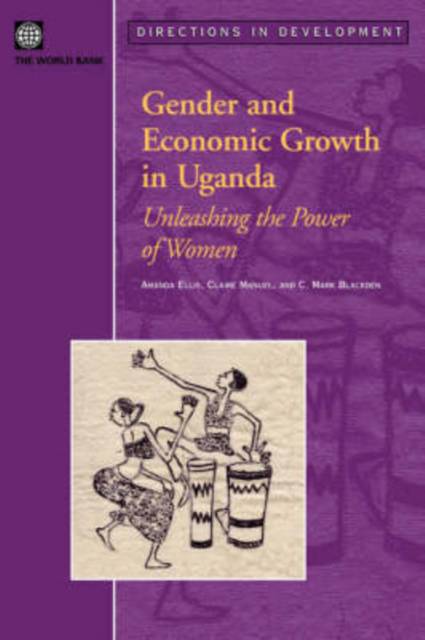
- Afhalen na 1 uur in een winkel met voorraad
- Gratis thuislevering in België vanaf € 30
- Ruim aanbod met 7 miljoen producten
- Afhalen na 1 uur in een winkel met voorraad
- Gratis thuislevering in België vanaf € 30
- Ruim aanbod met 7 miljoen producten
Zoeken
Gender and Economic Growth in Uganda
Unleashing the Power of Women
Amanda Ellis, Claire Manuel, C Mark Blackden
€ 25,45
+ 50 punten
Omschrijving
Men and women both play significant, though different, economic roles in Uganda (both contribute around 50% of GDP and women are 39% of business owners). Gender inequality in access to and control of productive assets and resources acts as a brake to women's economic participation and limits economic growth. Labor and time constraints differentially affect women's and men's capacity to engage in business activity, with significant consequences for agricultural productivity in the context of strategic exports. It is therefore important for Uganda to unleash the full productive potential of female as well as male economic actors, if it is to achieve high and sustained rates of pro-poor growth. This book considers the relationship between gender and economic growth in Uganda in the specific context of promoting women's business and entrepreneurship. Building on the findings of the FIAS Uganda Administrative Barriers to Investment Report, 2003, Gender and Economic Growth in Uganda identifies specific legal and administrative barriers to investment that have a gender dimension.
Specificaties
Betrokkenen
- Auteur(s):
- Uitgeverij:
Inhoud
- Aantal bladzijden:
- 102
- Taal:
- Engels
- Reeks:
Eigenschappen
- Productcode (EAN):
- 9780821363843
- Verschijningsdatum:
- 1/10/2005
- Uitvoering:
- Paperback
- Formaat:
- Trade paperback (VS)
- Afmetingen:
- 165 mm x 229 mm
- Gewicht:
- 181 g

Alleen bij Standaard Boekhandel
+ 50 punten op je klantenkaart van Standaard Boekhandel
Beoordelingen
We publiceren alleen reviews die voldoen aan de voorwaarden voor reviews. Bekijk onze voorwaarden voor reviews.











